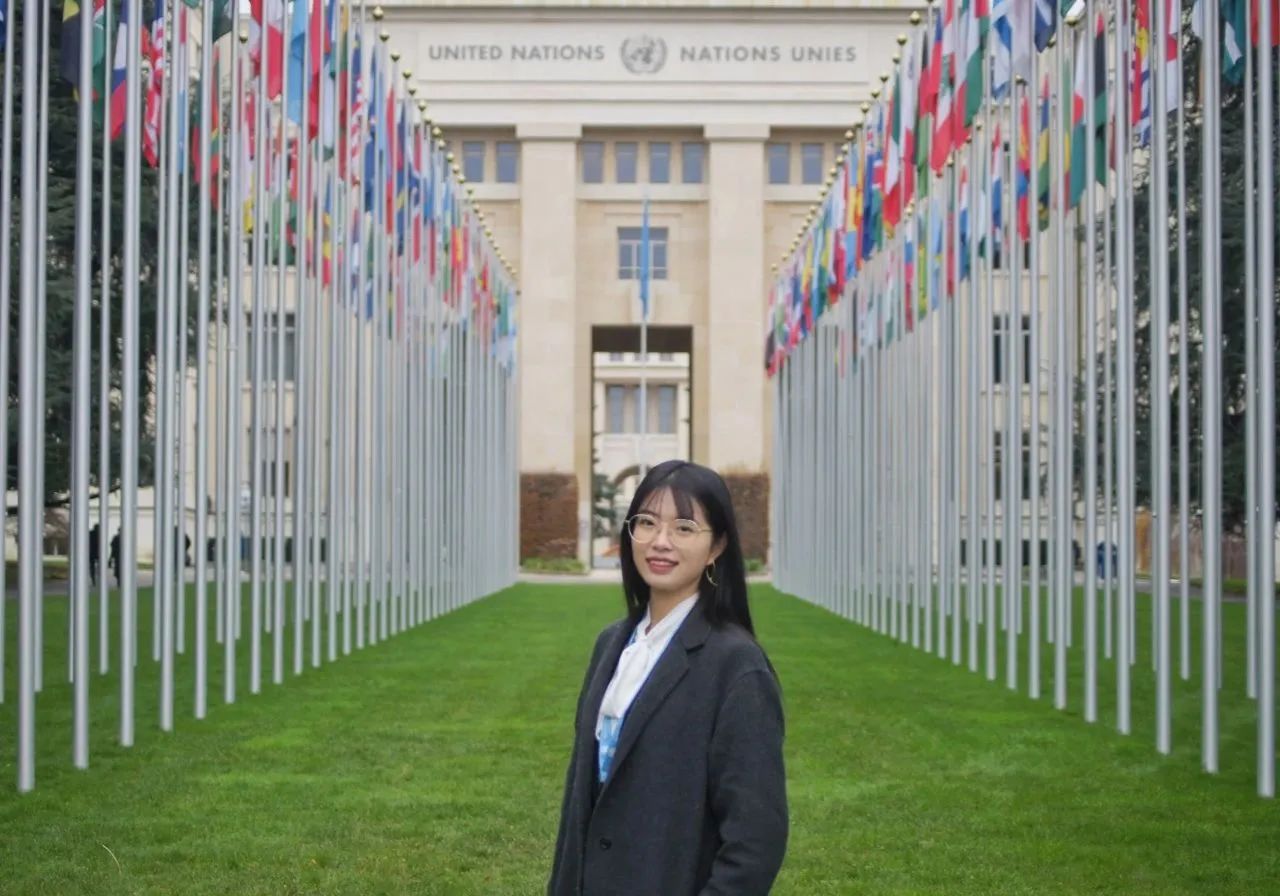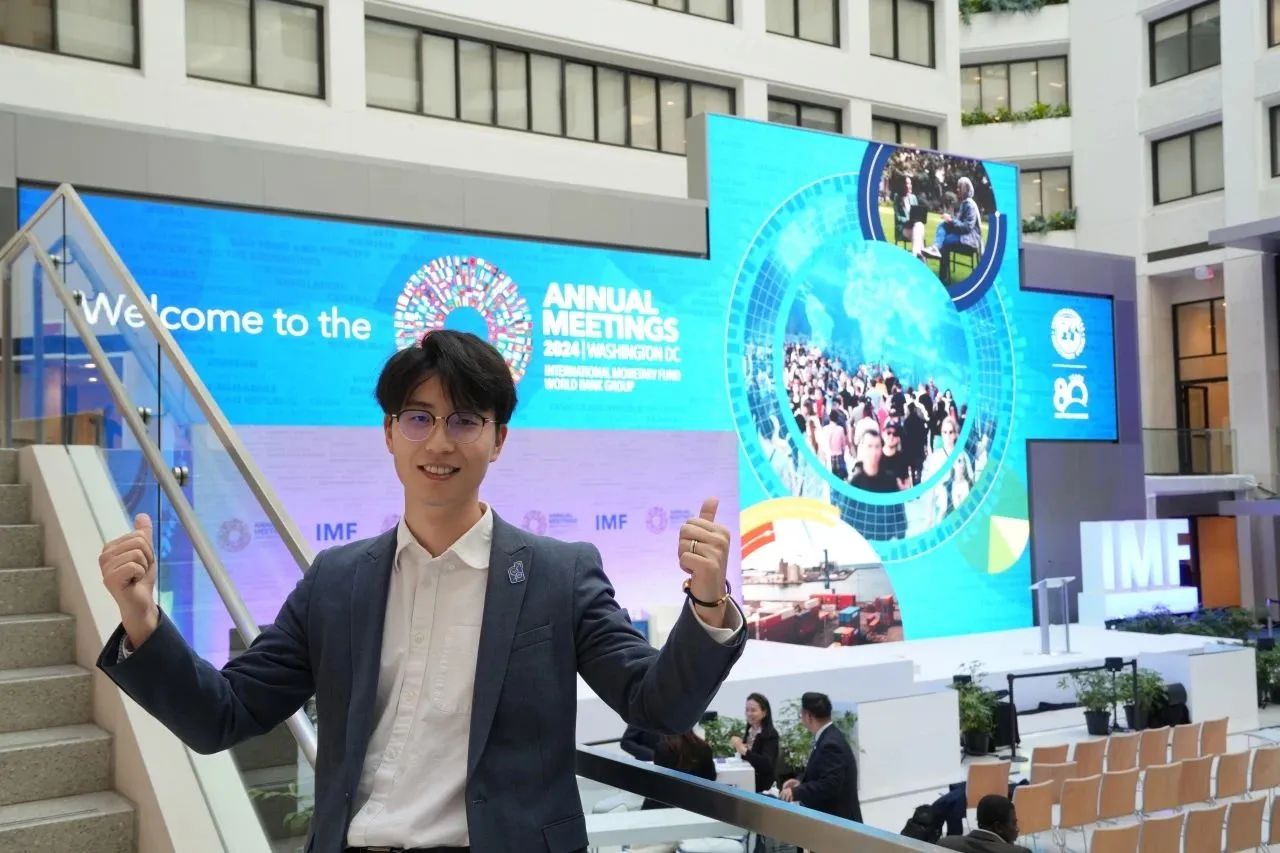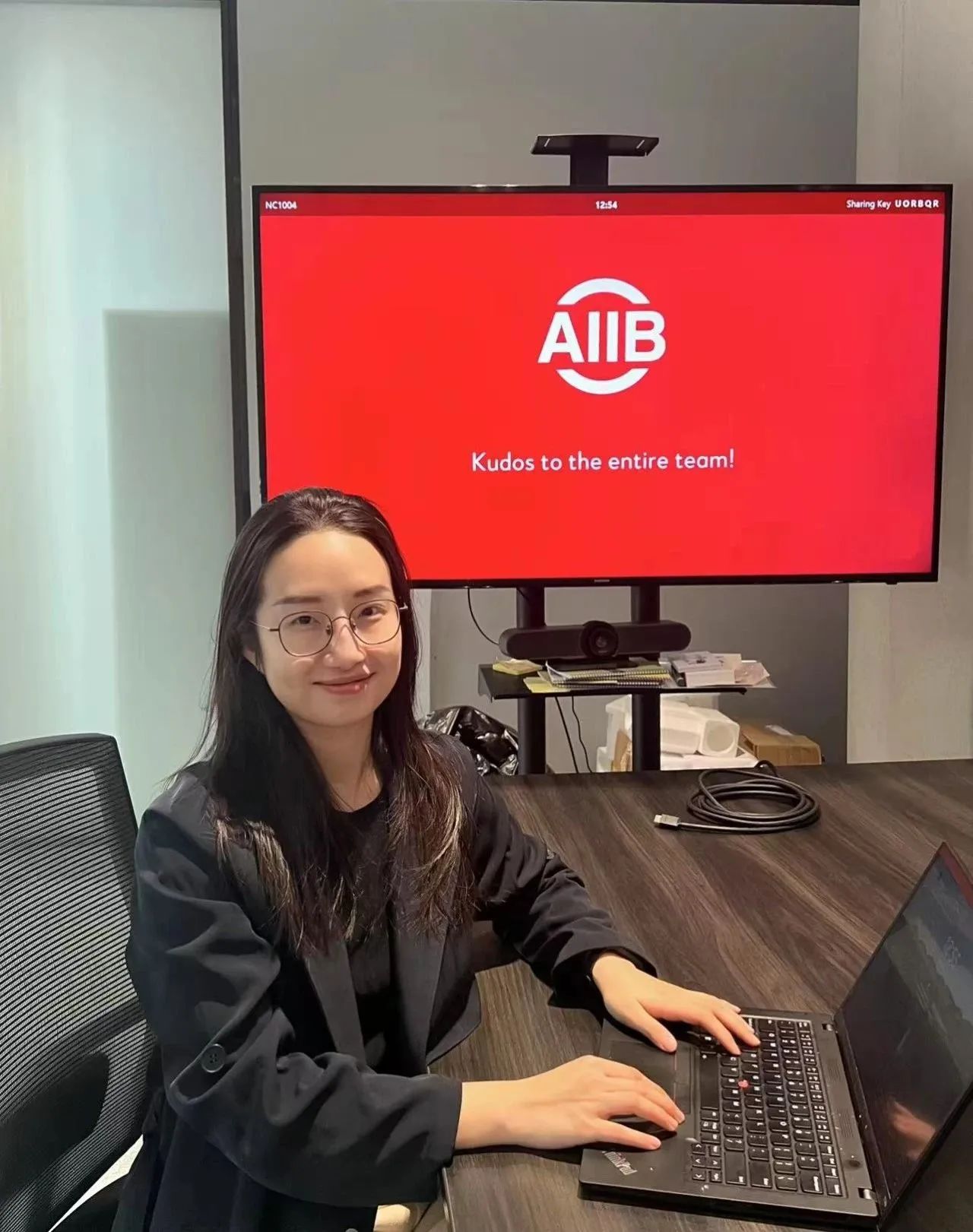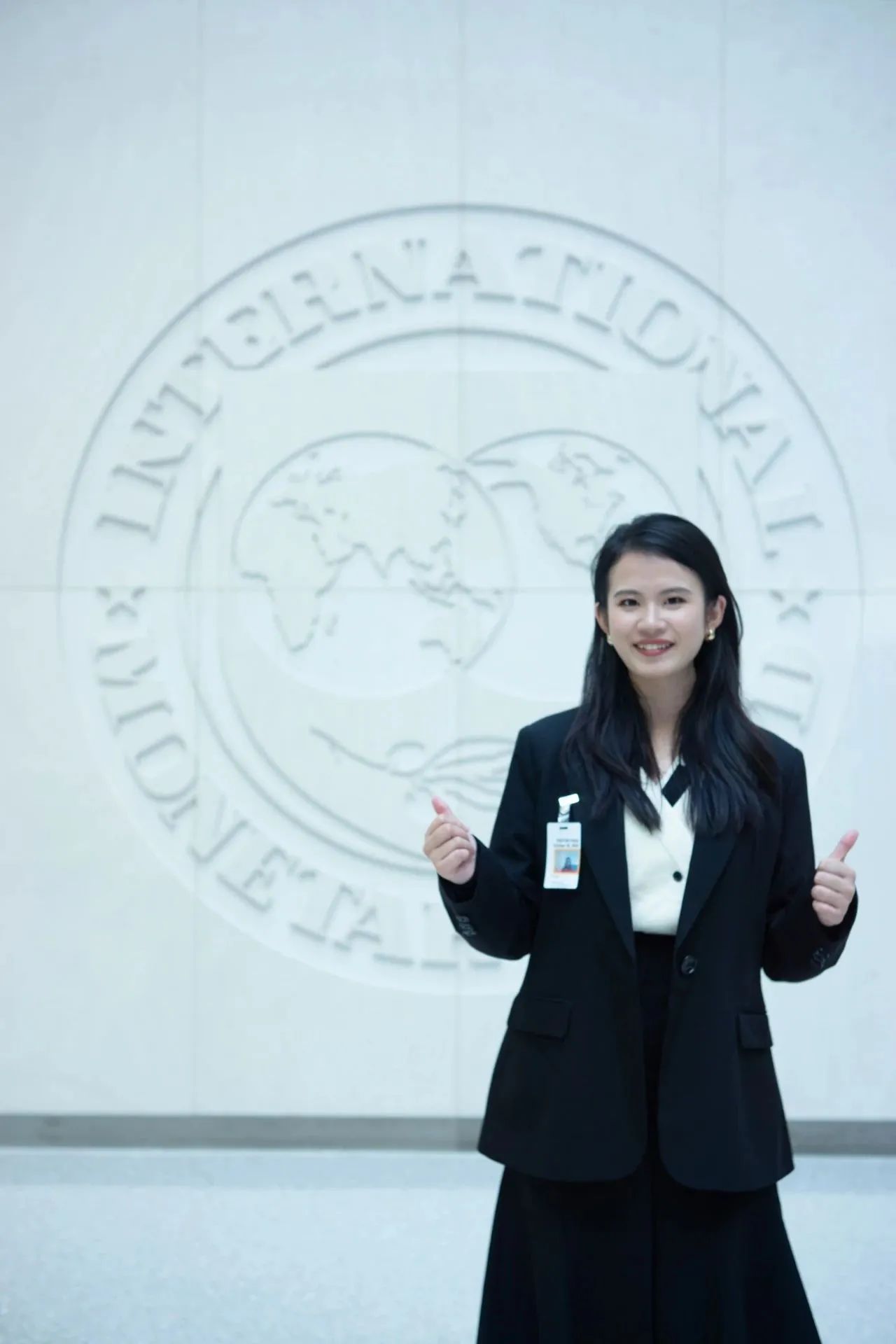The Five-Sphere Model Cultivates Global Governance Leaders. On March 13, 2025, People’s Daily Overseas Edition dedicated a full-page feature titled “Chinese Youths in International Organization” to highlighting the talent cultivation efforts of the School of International Governance Innovation (SIGI) at Guangdong University of Foreign Studies (GDUFS).

Full-Page Report in People’s Daily on SIGI
On a Sunday at 8 p.m. Beijing time, a journalist logged into an online meeting. The internet connected several Chinese youths from different time zones—Beijing, Geneva, and Washington. Engaged in an enthusiastic discussion, they shared insights on a common topic: What does working with an international organization truly entail?
International organizations serve as key platforms for promoting global cooperation. In recent years, the SIGI at GDUFS has been actively cultivating professionals in international governance for international organizations. What are the experiences and reflections of these young Chinese professionals on the global platform? How can more global-minded talents be nurtured? And how can China contribute its distinctive approach to the world?
Cultivation of Ideal Careers
International organizations, like the United Nations Office at Geneva (UN Geneva), the International Monetary Fund (IMF) and the Asian Infrastructure Investment Bank (AIIB), seem so prestigious and out of reach that most graduates may hesitate to apply for them when starting their careers.
However, during their studies at SIGI, GDUFS, students routinely broaden their horizons through various international exchange programs. These experiences deepen their understanding of international organizations and instill in them the aspiration to explore the wider world.
“If I hadn’t participated in international exchange programs when I pursued my Master’s degree, it would have been much more difficult for me to secure a position at an institution like the United Nations after graduation,” shared Song Ziting, who earned her master’s degree from SIGI at GDUFS in 2021. She now serves as a Junior Professional Officer (JPO) in the Multilingualism and Learning Section at the UN Geneva’s Division of Administration.

Song Ziting at the Palace of Nations, UN Geneva
Song Ziting majored in English as an undergraduate and initially aspired to become a professional interpreter. However, during her master’s program at GDUFS, she gradually realized that translation was merely a skill and that what truly mattered was how to leverage it in a more meaningful career.
In 2021, Song participated in a collaborative project between SIGI and the UN Office on Drugs and Crime. Alongside more than 20 classmates, she was responsible for translating the Initiative of Education for Justice. “I remember we translated over 300,000 words. When the final publication was released, everyone felt excited and proud because we realized that we, too, could contribute to the UN Sustainable Development Goals.”
Throughout the project, students engaged extensively with UN experts. “This experience had a profound impact on my career choices,” Song shared. “Later, when I applied for a position at UN, my interviewers were particularly interested in this project-based field experience.”
Hua Ding, one of Song’s classmates, also benefited from SIGI’s talent cultivation model. With a background in international trade, he pursued his Master’s degree at SIGI. After graduation, he joined the IMF in Washington D.C., as a Research Assistant.

Hua Ding at the 2024 Annual Meetings of the IMF and the World Bank (WB)
“During my Master’s program, I participated in the Word Bank Week organized by SIGI, where I had the opportunity to engage closely with professionals working in international organizations. Their exceptional expertise and broad global perspectives profoundly inspired me,” recalled Hua Ding. The event invited three economists from the WB to hold discussions. “What struck me most was a Chinese female economist’s confidence when she delivered a professional speech in fluent English. Since then, the idea began to take root in my heart that one day I could work in an international organization like her, doing something I love and find meaningful.
A role model provides strong motivation. The event not only gave Hua Ding valuable insights into the nature of work at the WB but also crystallized his career goal—to work in an international organization and contribute to policy research representing his country. Following this realization, he began closely monitoring vacancy announcements on international organization websites. His persistence paid off when he successfully passed the rigorous written and interview selection process of IMF, securing his ideal position.
“To strengthen China’s talent pool in international organizations and global governance, we must first enhance public awareness, especially among young people, of these organizations. We need to boost their interest in global governance issues and confidence in pursuing internships and careers in international organizations,” said Zhao Longyue, Dean of SIGI at GDUFS. In recent years, the school has deepened collaboration with international organizations, actively fostering high-caliber global governance professionals who meet the selection criteria and competency requirements of such organizations.
“The school strengthens cooperation with UN, WB, and World Trade Organization through academic research initiatives and professional training programs. We aim to ignite students’ intrinsic motivation for learning about international organizations and global governance. Additionally, we encourage students to participate in domestic and international research projects and various practical activities during their studies. These experiences help them develop essential skills such as academic research and cross-cultural coordination, preparing them for impactful careers in international governance,” Zhao emphasized.
Acquisition of Unique Experiences
After working in international organizations for a period of time, these young professionals have gained deeper insights into their career paths and life choices.
Li Peixin, who has been with AIIB for nearly four years, considers herself privileged to have made her career decision upon graduation. Reflecting on her journey, she believes that the most significant impact of this career path is that it has brought her more possibilities.

Li Peixin at AIIB
“I am mainly responsible for supporting the bank’s annual business and budget planning, monitoring budget execution, and managing special funds. This is an invaluable launchpad for me, as it not only allows me to gain insights into departmental business planning and daily operations, but also provides a direct understanding of how an international organization optimizes resource allocation to ensure flexible and efficient operations to achieve international development goals.” Li Peixin believes that if she had joined a company after graduation, she might have focused on the development of a specific industry or field. “However, AIIB is the world’s first multilateral financial institution established under China’s initiative. Working in such a platform, I see my own growth as intertwined with China’s economic development and global economic governance, considering the significance of my work in this broader context. This is a way of thinking that I had never considered before.”
After working at IMF for over two years, Hua Ding decided to venture out again, seeking opportunities to grow and contribute where he was needed most.
Last year, Hua passed the United Nations Young Professionals Program (YPP) in economic affairs. Just recently, he left the IMF and arrived in Ethiopia to take up a position as an Economic Affairs Officer at the United Nations Economic Commission for Africa. In his new role, he focuses on economic analysis, policy research, and technical support in areas such as natural resources, green economy, climate change, food security, and innovative financing in Africa.
Leaving behind Washington’s towering skyscrapers for the unfamiliar landscapes of Africa, Hua made a deliberate choice. “After passing the YPP, I received two offers from two organizations—one in New York and the other in Africa. After careful consideration, I chose the latter, as I felt it would be more beneficial for my long-term career development. I want to experience a new environment, gain fresh perspectives on the world, and accumulate meaningful life experiences.”
Hua hopes to make a greater impact in his new role through both research and hands-on projects, so that international resources can be leveraged to provide economic and technological assistance to developing countries. “I want to use my knowledge and skills to help those in need. Only by working on the ground can I truly understand the living conditions in underdeveloped areas. This firsthand experience will allow me to propose more practical and actionable policy recommendations in my future research.”
Under the cooperation agreements between the China Scholarship Council (CSC) and various international organizations, outstanding young professionals can apply for funding to serve as JPOs in some UN agencies. For Song Ziting, this financial support was invaluable during her first three years in Switzerland.
“With the backing of my country, I have been able to work and grow within the UN system, and I feel incredibly fortunate,” Song remarked. The longer she worked in an international organization, the more she realized her sense of mission. “As a young Chinese professional, I am closely connected to the world through my work. My words and actions shape how my colleagues perceive China. Therefore, I hold myself to high standards—not only striving for strong professional competence but also embracing innovation, passion, and a willingness to listen, express, and collaborate. My goal is to find common ground in diverse cultural settings and shoulder the responsibilities that our era has entrusted to us.”
This idea resonates with Hua Ding. He feels that working in an international organization, with its diverse cultural environment, is both interesting—providing the opportunity to make friends from all over the world—and also involves constant self-improvement. One must continuously enhance cross-cultural communication skills, acquire new knowledge, and absorb advanced experiences, striving to complete every task with a more professional, rigorous, and responsible attitude.
“I strongly hope that more talented Chinese professionals will join international organizations because I believe this will create mutual benefits.” Hua believes young Chinese professionals can play a crucial role in international affairs by voicing the perspectives of developing countries and advocating for a fairer, more inclusive global system. At the same time, they can contribute China’s expertise in public administration, digital governance, and policy implementation, bringing more pragmatic and efficient governance concepts to international organizations and enhancing global governance capacity. When these young professionals return to China in the future, they can leverage their international experience and skills to contribute to the country’s high-standard opening-up.
Enhancement of Talent Cultivation Systems
The success of these young Chinese professionals on the international stage is closely tied to the growing emphasis on global governance talent development in Chinese universities.
In 2016, GDUFS took the lead among Chinese universities by establishing SIGI. Dedicated to advancing teaching and research in international organizations, global governance, and international regulations, the school plays a crucial role in accelerating the cultivation of professionals in these fields. This initiative has received strong support from the Ministry of Foreign Affairs, the Ministry of Education, and CSC. According to Dean Zhao Longyue, SIGI has developed an innovative “Five-Sphere” talent cultivation model, with a strong emphasis on moral integrity and a commitment to fostering both patriotism and global vision. The ultimate goal is to train well-rounded professionals with interdisciplinary expertise in international governance.
A distinctive feature of SIGI’s program is its cross-disciplinary approach. Students from diverse academic backgrounds such as Hua Ding, Song Ziting, and Li Peixin have all pursued a Master’s degree at SIGI.
“We designed our admissions to be purposefully inclusive,” Zhao explained. “We welcome students from various academic backgrounds to study together and help each other here.” Zhao believes that fostering talents in international governance and international organization should break down disciplinary barriers. It is essential to integrate fields such as international politics, diplomacy, law, economics, and management to build a comprehensive and interdisciplinary curriculum covering global governance, international organizations, strategic studies, and negotiation.
Another defining characteristic of SIGI is its strong commitment to international collaboration. The school has established long-term partnerships with prestigious institutions such as the University of Maryland and the European University Institute.
Yu Jiaqi, a 2022 cohort member, is currently studying at the University of Maryland’s School of Public Policy. Inspired by the success of alumni who have joined international organizations, Yu has already set her sights on securing a role in the global governance arena.

Visit of Yu Jiaqi to IMF
Yu Jiaqi believes that her studies at the University of Maryland will significantly benefit her future career development. “With a background in accounting and auditing, I have had the opportunity to broaden my understanding of public financial management, public policy analysis, and global economic governance. Additionally, I have been able to explore how to translate academic theories into actionable policies. Engaging with faculty and peers from diverse cultural backgrounds has also strengthened my cross-cultural communication skills and global perspective,” she reflected.
Beyond the classroom, the University of Maryland regularly organizes study visits to the United States Congress, various public agencies, and international organizations like WB and IMF. “Through discussions with experts from these organizations, I have gained a deeper understanding of how international organizations operate. These experiences have helped me realize that the formulation and implementation of global public policies involve negotiations, cooperation, and continuous adjustments among multiple stakeholders. The introduction of each policy involves striking a balance between practical constraints and long-term objectives, which has given me a more direct and profound understanding of the complexity of global governance,” Yu said.
Dean Zhao Longyue emphasizes that strengthening partnerships with international universities not only enhances students’ global vision and transcultural communication skills but also facilitates mutual learning between Chinese and international academic communities, thereby promoting friendly interactions between the general public of China and other countries. “Amity between peoples holds the key to sound state-to-state relations.” When young people from different countries engage in meaningful exchanges, learning from one another with a spirit of appreciation, mutual respect, and shared progress, they contribute to a community with a shared future for humankind,” Zhao remarked.
